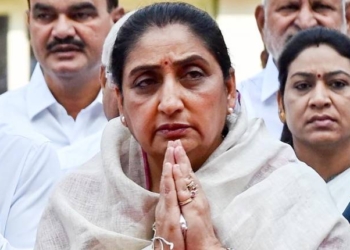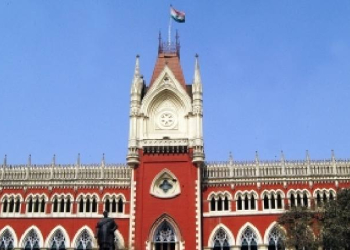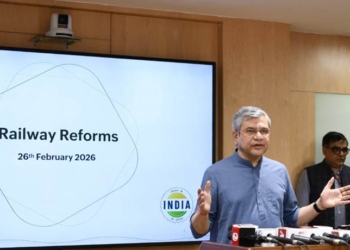New Delhi: The Supreme Court on Thursday flagged the ongoing influx of migrants through various border states of India and called for more robust policy measures to curb illicit movements and enhance border regulation.
A Constitution Bench, headed by CJI D.Y. Chandrachud, was dealing with a clutch of petitions challenging Section 6A of the Citizenship Act 1955, which confers citizenship on a specific class of migrants from Bangladesh to Assam, on the ground that it violates Articles 6,7,14, 29 and 355 of the Constitution.
Section 6A, introduced in 1985 by the Citizenship (Amendment) Act 1985, grants citizenship to persons of Indian origin who migrated to Assam from Bangladesh.
In a 4:1 decision, the Supreme Court turned down the challenge to the constitutional validity of Section 6A of the Citizenship Act 1955 but said it was imperative to acknowledge and address the valid concerns regarding the persistent immigration in Assam post-1971.
“Although Section 6A conferred citizenship rights exclusively to immigrants arriving before this cut-off date, there seems to still be an ongoing influx of migrants through various border states of India. Due to porous borders and incomplete fencing, this unceasing migration imposes a significant challenge,” the SC said.
It referred to the statement made on behalf of the Union government that it was not possible to collect accurate data regarding illegal immigrants as such people entered the country in a clandestine and surreptitious manner.
In the course of the hearing, the top court had called for a common affidavit from the Union and Assam governments about the number of Bangladeshi immigrants granted citizenship under section 6A in Assam between January 1, 1966, and March 25, 1971.
Issuing a slew of directions to restrict illegal immigration post-1971, the Supreme Court said that while the statutory scheme of Section 6A is constitutionally valid, there is inadequate enforcement of the same, leading to the possibility of widespread injustice.
In substance, it held that immigrants who entered Assam prior to 1966 are deemed citizens, immigrants who entered between the cut-off dates of January 1, 1966, and March 25, 1971, can seek citizenship subject to the eligibility conditions prescribed in Section 6A, and immigrants who entered Assam on or after March 25, 1971, are not entitled to the protection conferred under Section 6A and declared to be “illegal immigrants”.
Section 6A has become redundant with respect to those immigrants who entered Assam on or after March 25, 1971, the top court held, ordering the deportation of the illegal immigrants.
The SC said that provisions of the Immigrants (Expulsion from Assam) Act, 1950 should be read into Section 6A for the purpose of identification of illegal immigrants.
Noting that the statutory machinery and tribunals tasked with the identification and detection of illegal immigrants or foreigners in Assam are inadequate, the Constitution Bench said that constant monitoring by the top court is necessitated because “implementation of immigration and citizenship legislations cannot be left to the mere wish and discretion of the authorities”.
The Constitution Bench directed that the matter be placed before the Chief Justice of India (CJI) for the constitution of a bench to monitor the implementation of its directions.
The amended Section 6A provided that “all persons of Indian origin who came before the 1st day of January 1966 to Assam from the specified territory (including such of those whose names were included in the electoral rolls used for the General Election to the House of the People held in 1967) and who have been ordinarily resident in Assam since the dates of their entry into Assam shall be deemed to be citizens of India as from the 1st day of January 1966”.
(IANS)















